

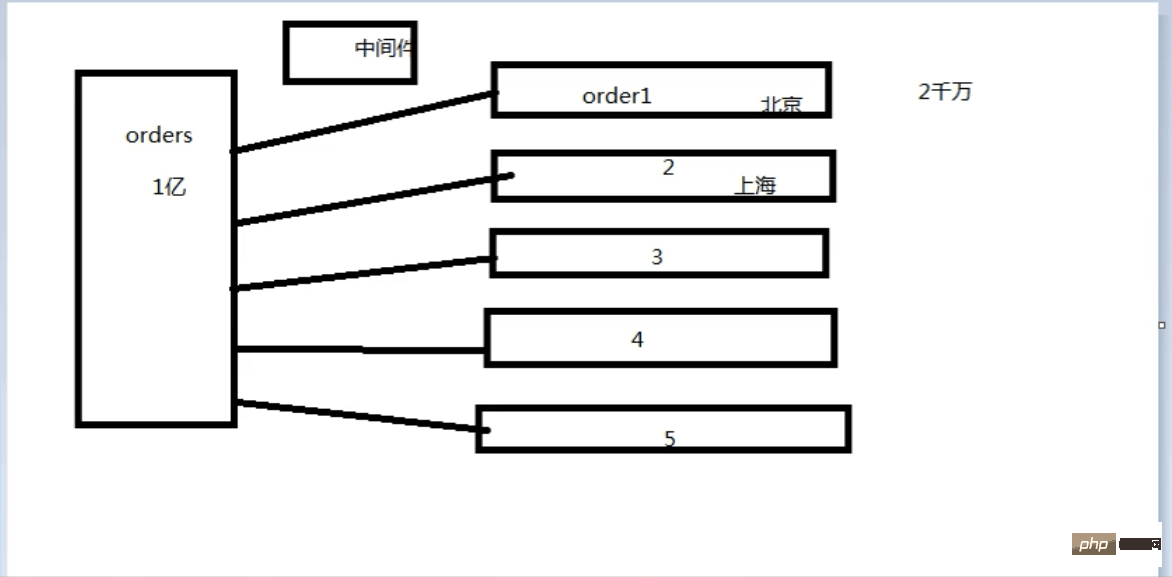
An order table worth 100 million can be divided into five tables , so that each table only has 20 million data, which shares the pressure of the original table. The sub-tables need to be divided according to certain conditions. Here, the tables can be divided according to regions. A middleware is needed to control which table is going to table to find the data you want.
Middleware: Use the auto-incremented id of the main table as middleware (what fields are suitable for middleware? It must be unique)
How to distribute? After inserting into the main table, an id is returned, and the modulo is taken based on this id and the number of tables. The data is inserted into whichever table the remainder is.
Note: The id in the sub-table must be consistent with the id of the main table.
In the future, only insert operations will use the main table. Modification, deletion, and reading do not need to use the main table.
Related learning recommendations: PHP programming from entry to proficiency

1. What is a message queue?
Container that saves messages during the message propagation process
2, the historical reasons for the generation of message queue

The characteristics of message queue: first in, first out
The executed SQL statements are first saved in the message queue, and then sequentially inserted into the database smoothly and asynchronously.
Application: Sina, put the instant comments into the message queue first, and then insert the SQL statements in the message queue sequentially through scheduled tasks. Go to the database
Operation sub-table to modify
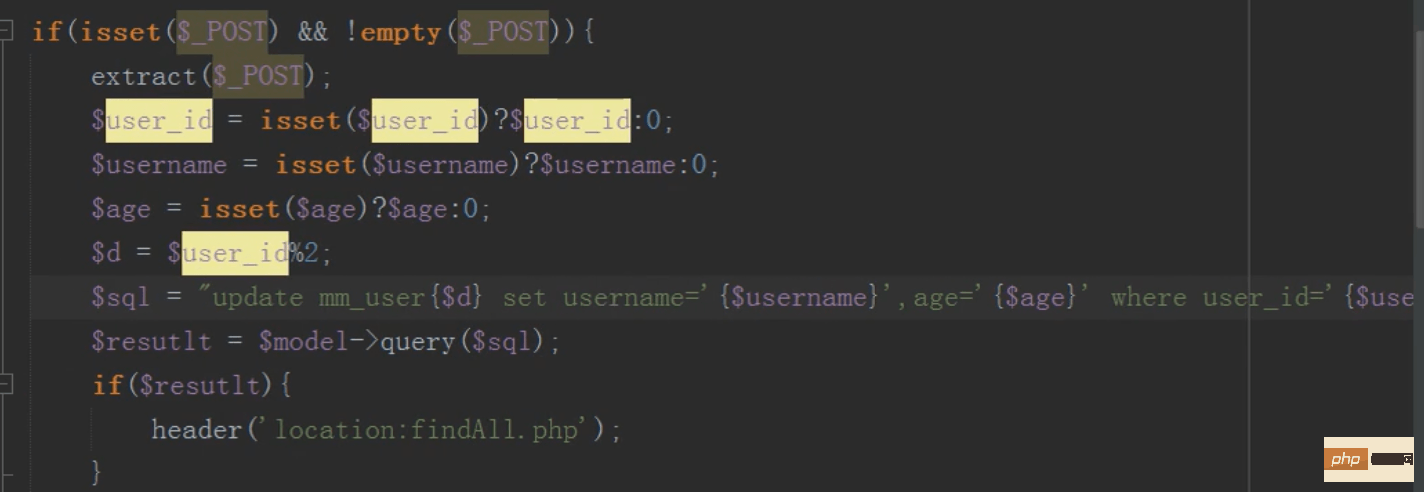
There is a problem with this modification, the main table There will be inconsistencies with the data in the sub-table. How to make the data in the main table and the sub-table consistent?
After the modification is completed, the data of the main table will be modified and stored in the redis queue
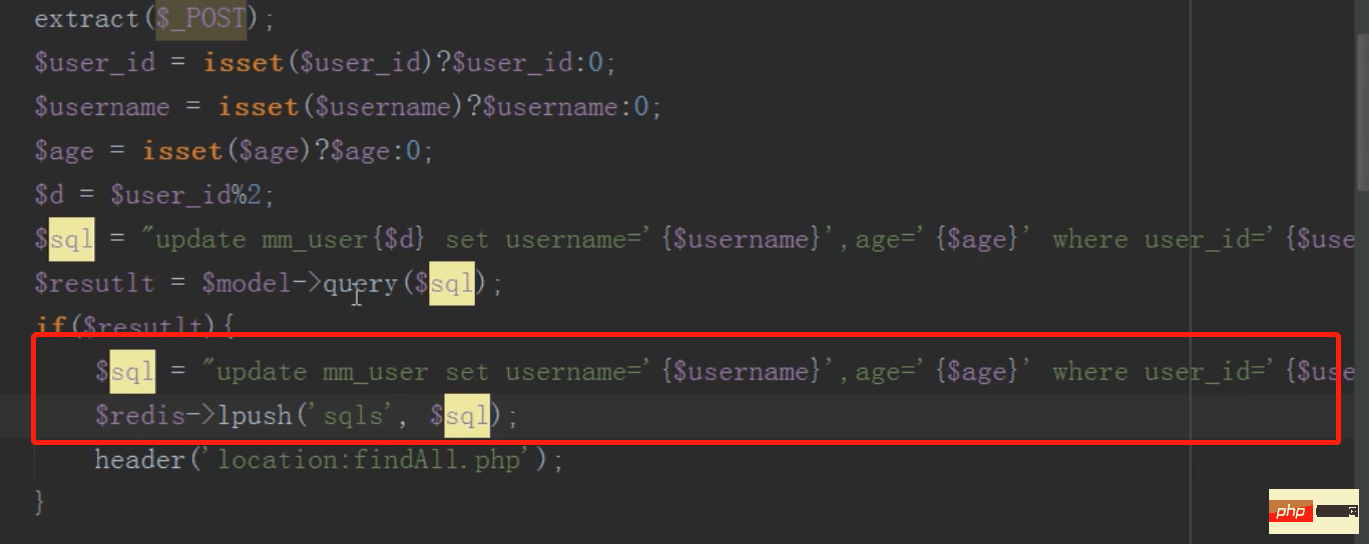
Then the linux scheduled task (contble) loops to execute the sql statement in the redis queue and synchronously updates the contents of the main table
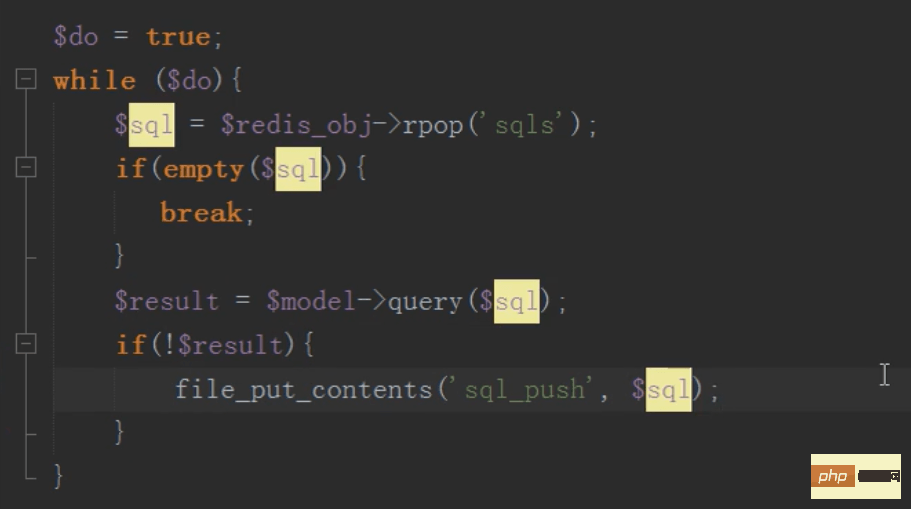
Query only needs to query the sub-table, do not query the total table

Delete, first find the object based on the id Delete the sub-table, then delete it, and then push a sql statement to delete the total table data into the message queue
Then execute a scheduled task to delete the total table data
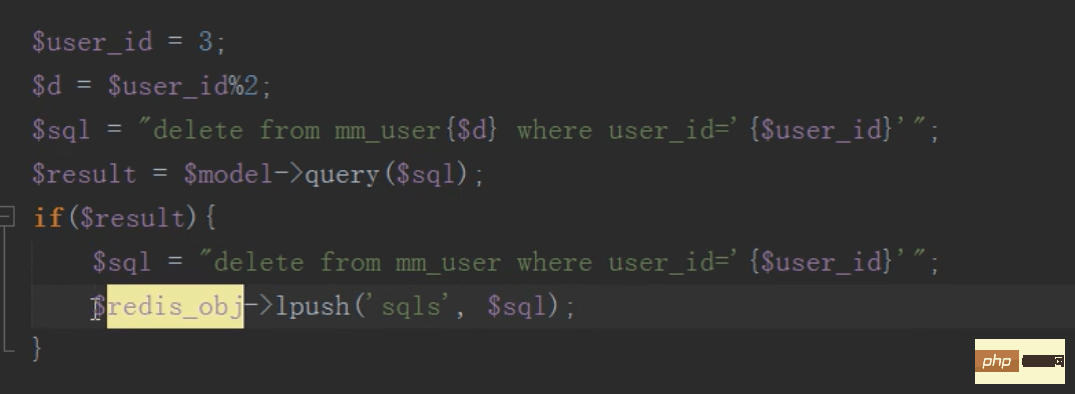
Timing Task:
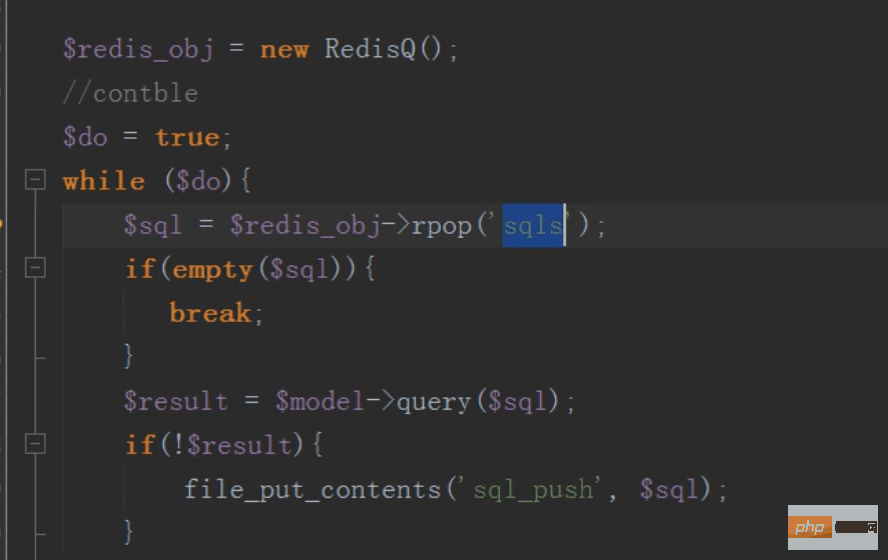
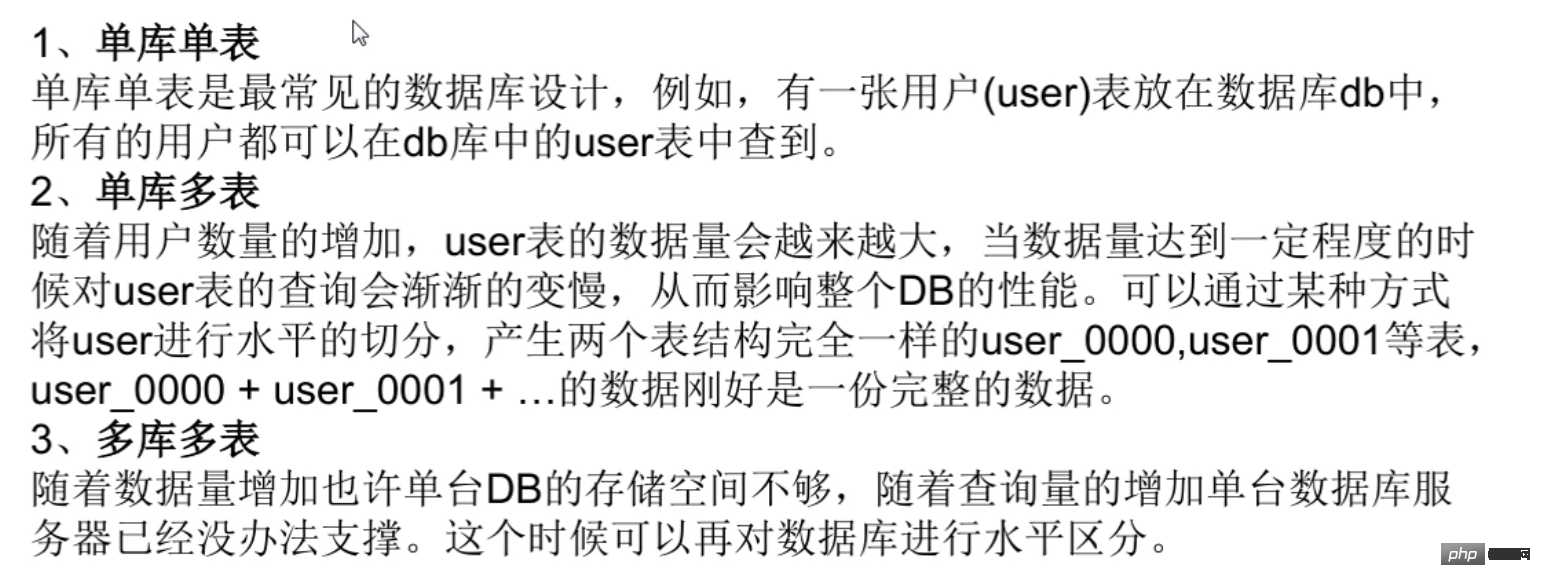
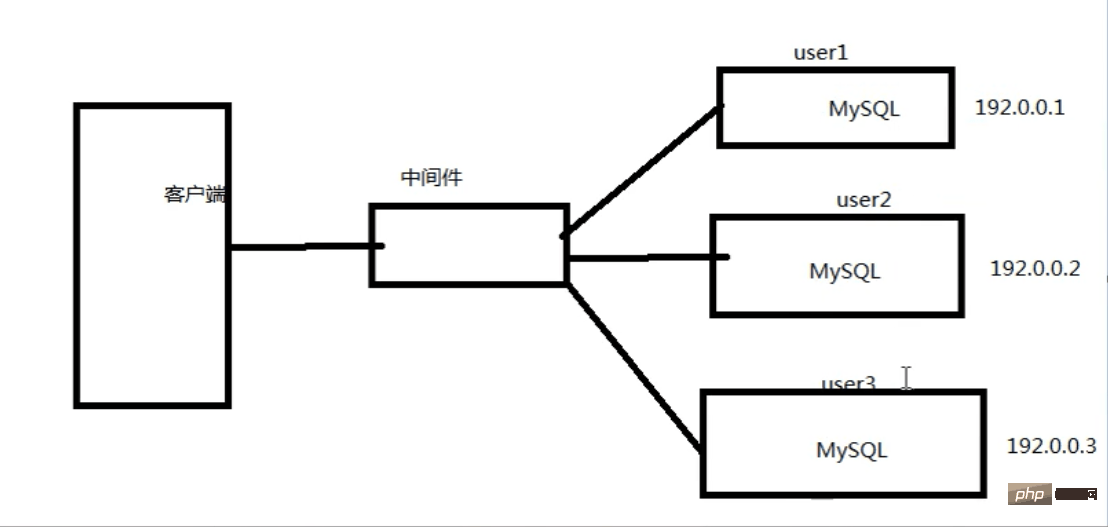
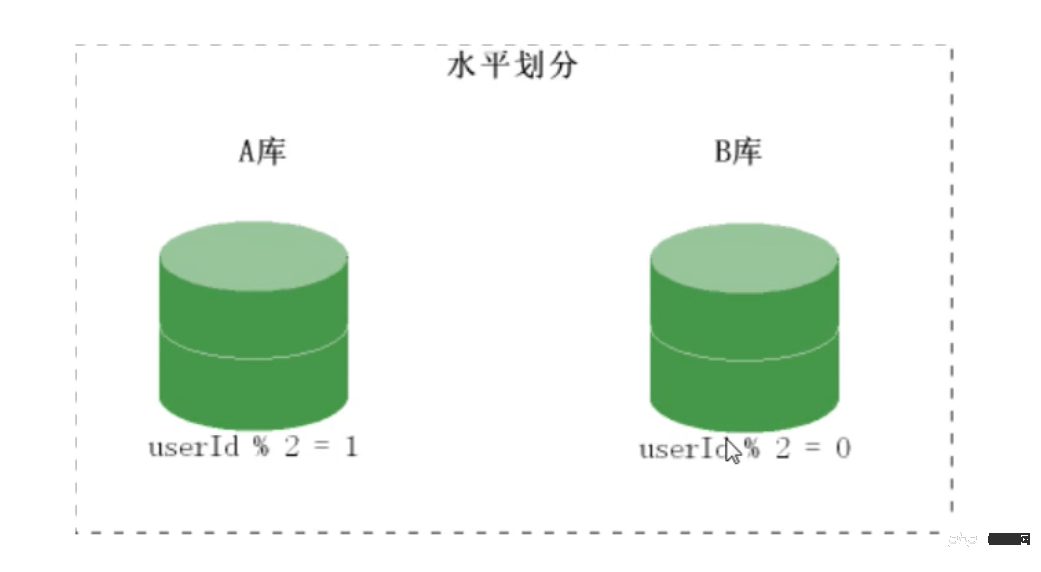
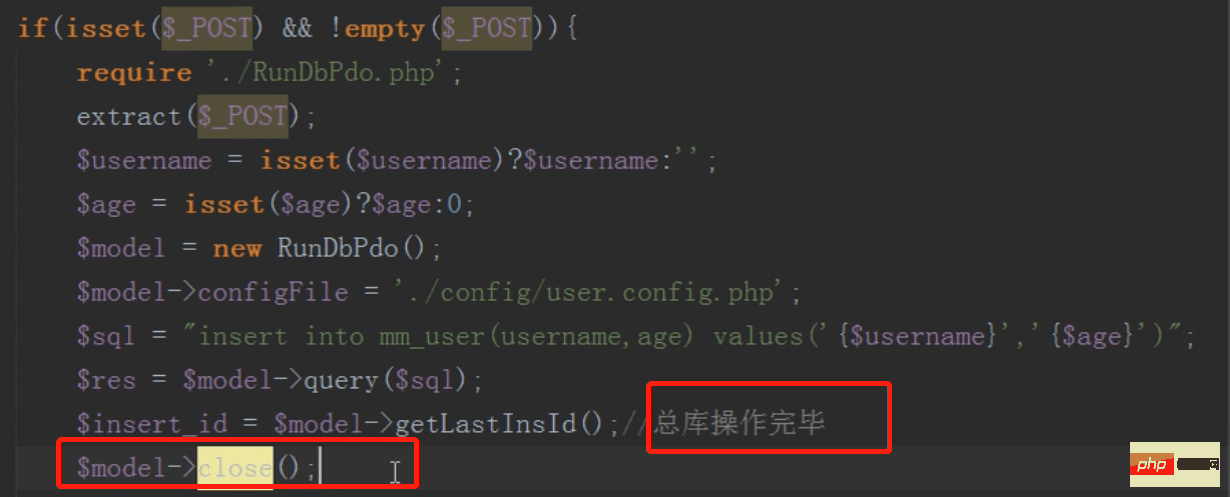
Note: After operating a database, you must close the database connection, otherwise mysql will think it is always connected The same database
or take the modulus to determine which configuration file to load and connect to which database

The principle is similar to the new
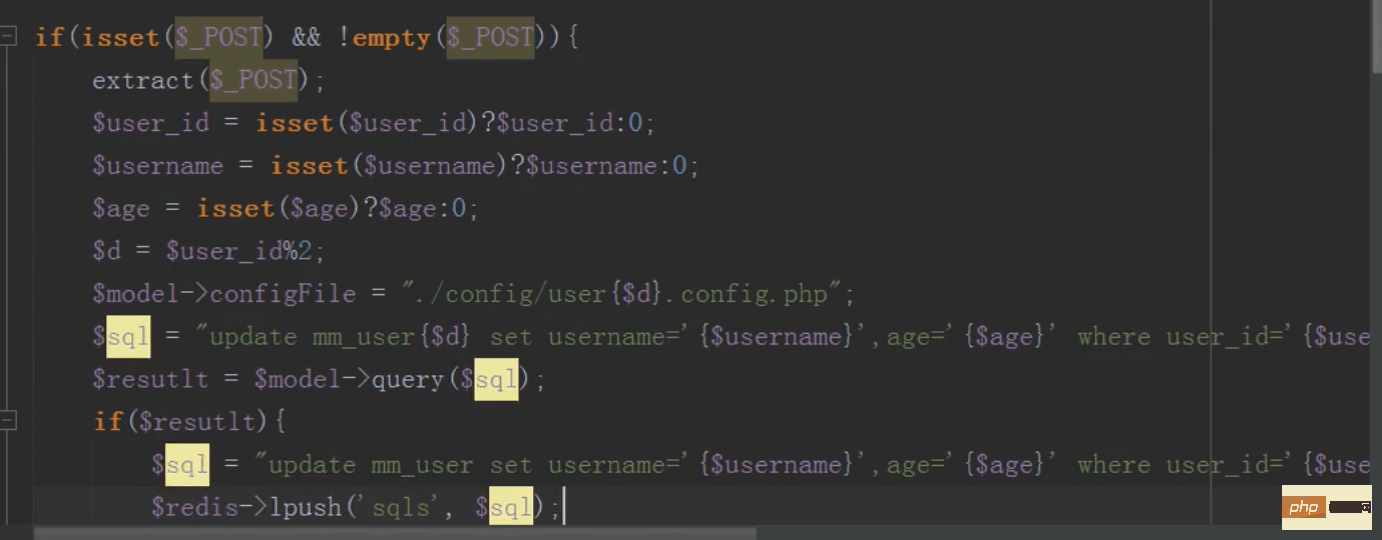
The principle is similar

Delete
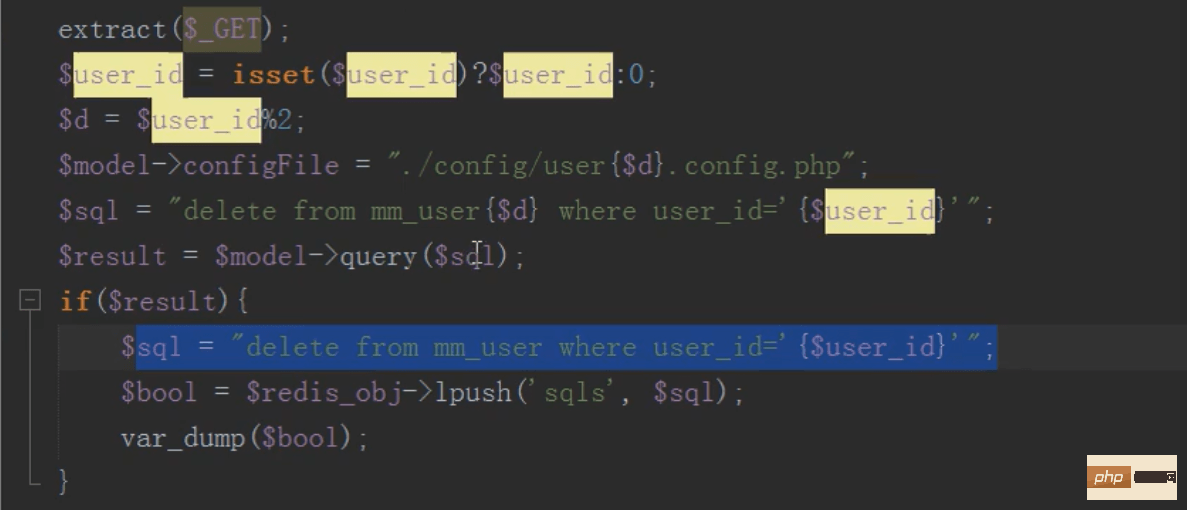
Execution queue
Put the data into the cache to save database overhead. First check the cache. If there is any, take it out directly. If not, check the database and then store it in the cache.
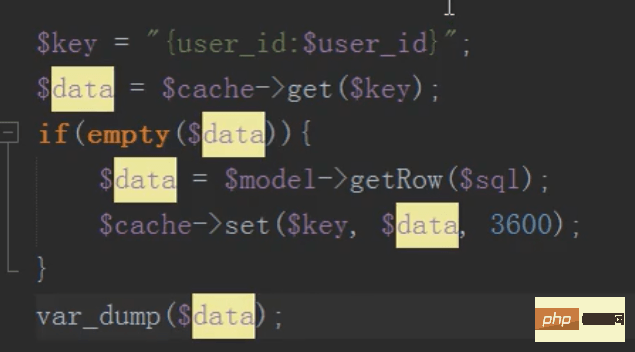
You need to delete the cache after editing the information, otherwise you will always read the cached data instead of the modified data
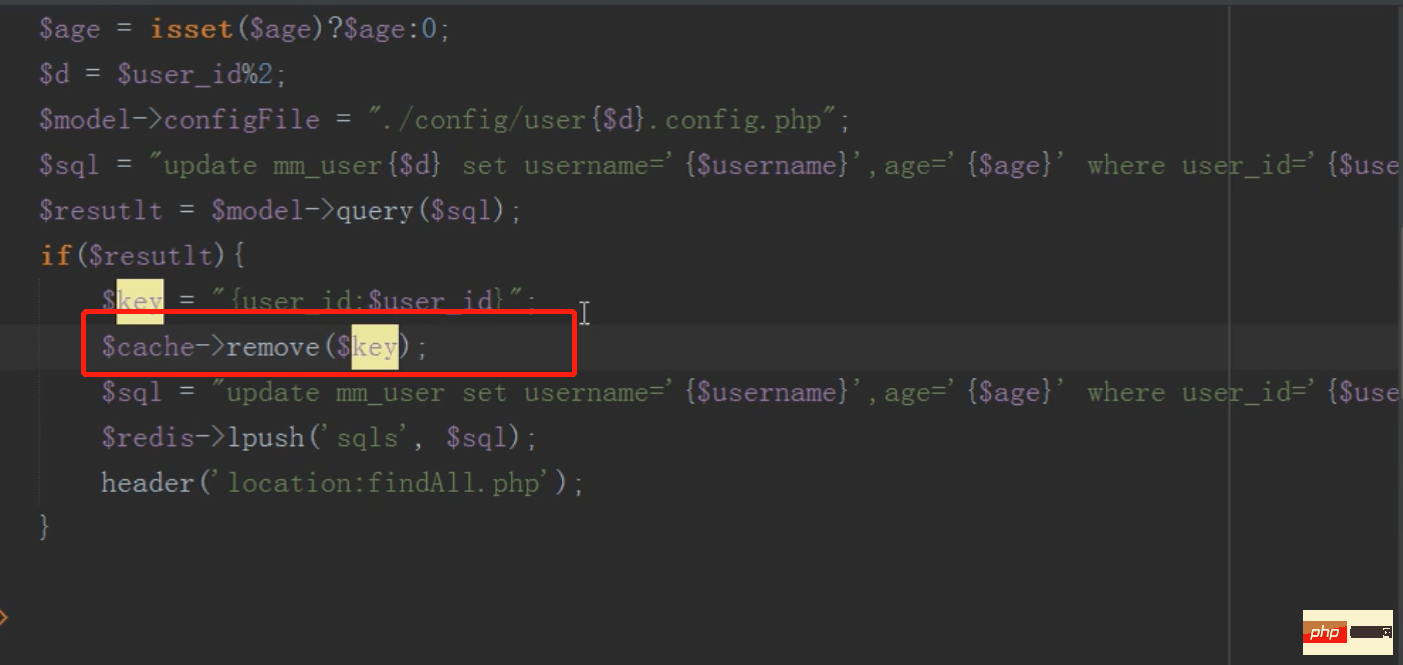
The above is the detailed content of How to combine PHP with MySQL for tens of millions of data processing. For more information, please follow other related articles on the PHP Chinese website!